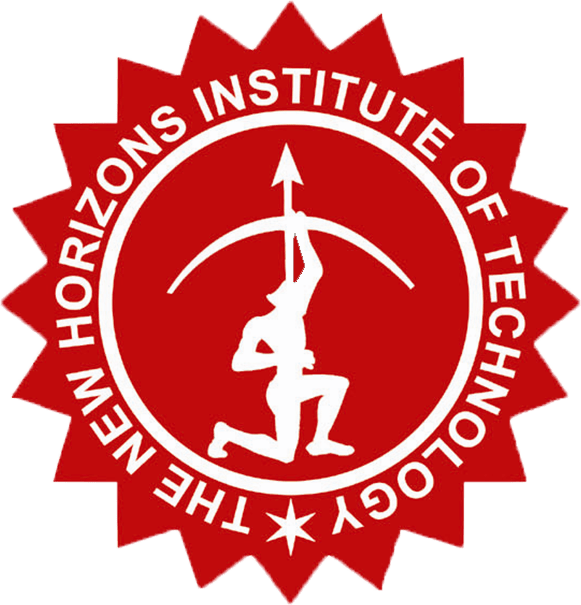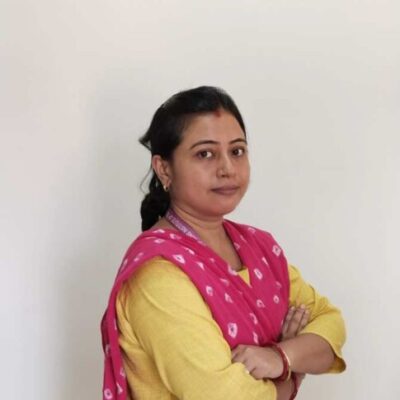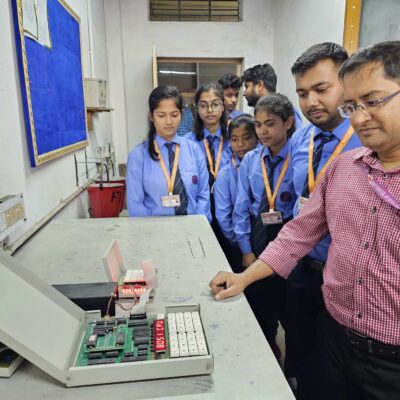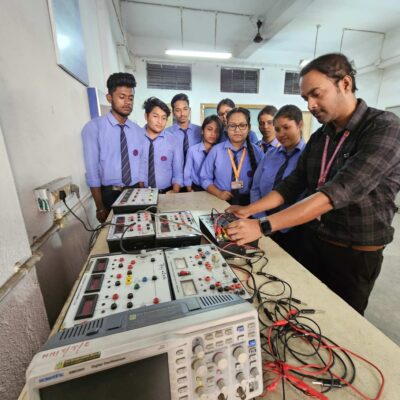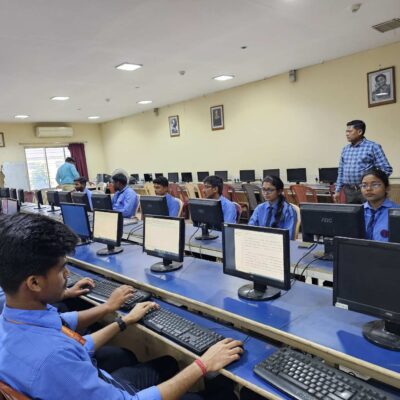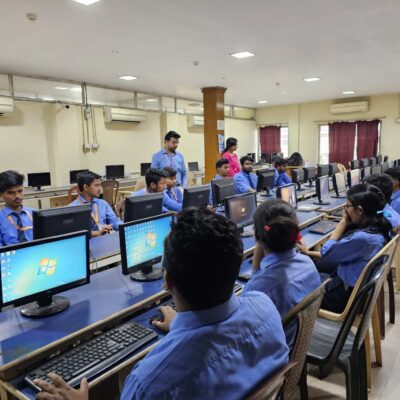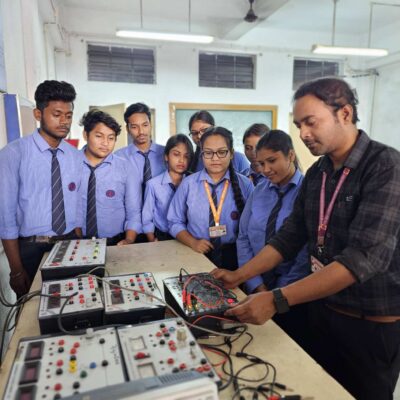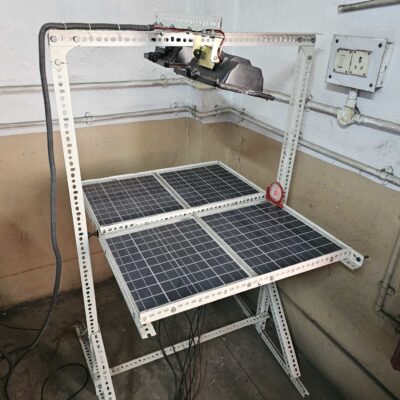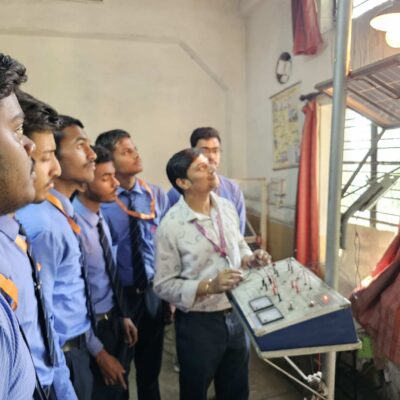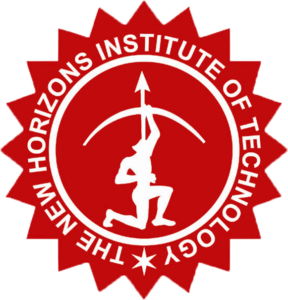Diploma in Electronics & Telecommunications Engineering
Course Summary
Diploma in Electronics & Telecommunications Engineering is a 3-year-long diploma programme for candidates who have completed their Class 10 and want to pursue Electronics & Telecommunications engineering as a career. It is a reputable diploma programme that offers several job opportunities to young students. It is a diploma-level engineering programme that focuses on designing,
constructing, and maintaining physical and naturally-built environments such as bridges, roads, canals, and buildings. and dams. It can be both an online Diploma in Electronics & Telecommunications Engineering and an offline Diploma in Electronics & Telecommunications Engineering.
Our Faculties
Eligibility Criteria
The minimum eligibility criteria to apply for Diploma in Electronics & Telecommunications Engineering are given below:
- The candidate must have passed Class 10th from a recognised board.
- He/ She must have studied Science and English in qualifying examination with Mathematics as one of the subjects,
- The minimum percentage required for admission is 50% in Class 10th board.
- Relaxation is given to candidates with sports quota, PwD or reserved category candidates.
Admission Process
Most of the institutes in India accept admission in Diploma in Electronics & Telecommunications Engineering on a merit basis. Candidates must meet the minimum eligibility criteria and based on his/her performance in Class 10th, he/she is considered for admission.
However, certain institutes may conduct their own entrance examination based on the Class X syllabus to consider admission to Diploma in Electronics & Telecommunications Engineering.
Candidates interested in studying Diploma in Electronics & Telecommunications Engineering must apply at the respective institute by filling out the application form and completing the admission process for admission.
Documents Required
The minimum eligibility criteria to apply for Diploma in Electronics & Telecommunications Engineering are given below:
- The candidate must have passed Class 10th from a recognised board.
- He/ She must have studied Science and English in qualifying examination with Mathematics as one of the subjects,
- The minimum percentage required for admission is 50% in Class 10th board.
- Relaxation is given to candidates with sports quota, PwD or reserved category candidates.
Syllabus
- Applied Physics I
- Applied Chemistry I
- Applied Mathematics I
- Basics of Information Technology
- Engineering Drawing I
- English and Communication Skills
- Workshops
- Labs
- Applied Physics II
- Applied Chemistry II
- Applied Mathematics II
- Engineering Drawing II
- Environmental Studies
- Workshops
- Labs
- Applied Mechanics
- Automobile engineering Drawing
- Thermal and Hydraulic engineering
- Electrical and electronics
- Automotive materials
- Workshops
- Labs
- Auto Engine
- CAD in automobile engineering
- Strength of Material
- Chassis body and transmission
- Workshop technology
- Workshops
- Auto Electrical and Electronics equipment
- Auto engine II
- Auto Repair Maintenance
- Basics of management
- Basics of design
- Projects
- Auto Repair Maintenance II
- Vehicle and transport management
- Elective subjects
- Tractor and heavy machinery
- General and entrepreneurship skills
- Projects
Infrastructure
- CONSUMER ELECTRONICS LAB
- CONTROL SYSTEM AND PLC LAB
- DIGITAL AND MICROWAVE COMMUNICATION SYSTEMS LAB
- DIGITAL ELECTRONICS LAB
- ELECTRONIC CIRCUITS AND NETWORK LAB
- ELECTRONIC DEVICES AND CIRCUITS LAB
- ELECTRONIC MEASUREMENTS AND INSTRUMENTATION LAB
- ELECTRONICS WORKSHOP
- EMBEDDED SYSTEMS LAB
- FUNDAMENTALS OF ELECTRICAL AND ELECTRONICS ENGINEERING LAB
- INDUSTRIAL ELECTRONICS LAB
LINEAR INTEGRATED CIRCUITS LAB - PRINCIPLES OF ELECTRONIC COMMUNICATION LAB
CONSUMER ELECTRONICS LAB - DIGITAL & MICROWAVE COMMUNICATION ENGINEERING LAB
- DIGITAL ELECTRONICS LAB
- ELECTRONICS MEASUREMENT LAB
Career Options and Job Prospects
After the completion of a Diploma in Electronics & Telecommunications Engineering course, a candidate can choose from a list of job roles which is given below:
- Automobile Mechanic
- Automobile Technician
- Quality Engineer
- Design Engineer
- Production Engineer
- Automobile Maintenance Engineer
- Engineer Trainee
Some of the top recruiters of Diploma in Automobile Engineering candidates include Mahindra & Mahindra, Maruti Suzuki, Bajaj, Hero Motocorp Ltd, Honda, TELCO etc.
FAQs
The Diploma in Electronics & Telecommunications Engineering at NHIT is a three-year program, divided into six semesters. Each semester combines theoretical learning with practical training.
Candidates must have completed their 10th standard (or equivalent) from a recognized board to be eligible. A background in mathematics and science is beneficial for this course.
Graduates can pursue roles such as Electronics Engineer, Telecom Engineer, Network Engineer, RF Engineer, and Service Engineer. They can also opt for further studies, such as a Bachelor's degree in Electronics or Telecommunications Engineering.
The curriculum includes subjects like Analog and Digital Electronics, Communication Systems, Microprocessors, VLSI Design, Signal Processing, and Networking. Practical labs and projects are integral to the learning process.
Yes, the course offers extensive practical training through labs and workshops. Additionally, students are encouraged to participate in internships during the final semesters to gain hands-on industry experience.
